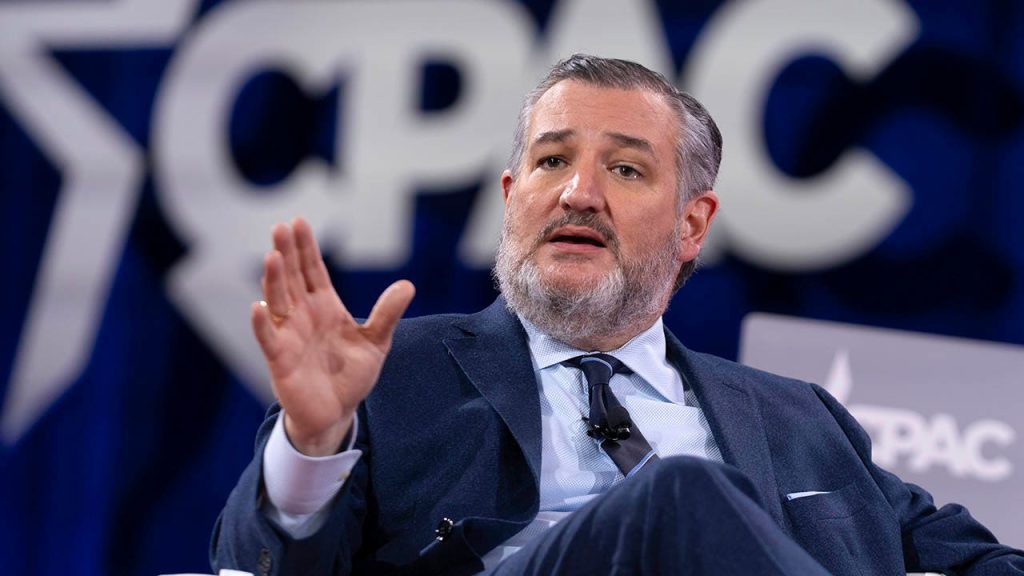Ted Cruz Warns Against Government Censorship in Media
In a recent episode of his podcast “Verdict with Ted Cruz,” Senator Ted Cruz cautioned against using government power to censor media outlets, even when they spread falsehoods. His comments came in response to FCC Chair Brendan Carr’s suggestion that ABC could face regulatory action after late-night host Jimmy Kimmel falsely claimed that the alleged assassin of Turning Point USA co-founder Charlie Kirk was a MAGA supporter. Cruz, despite being a frequent target of Kimmel’s mockery, argued that government intervention in media content sets a dangerous precedent that could ultimately backfire on conservatives. The debate highlights the tension between combating misinformation and protecting free speech, particularly as the political landscape continues to polarize.
Cruz’s warning comes at a time when ABC has already suspended Kimmel “indefinitely” for failing to correct his mischaracterization of the alleged assassin’s political affiliation. While Carr suggested the FCC might enforce “public interest” obligations that broadcasters must meet to maintain their licenses, Cruz characterized this approach as “dangerous as hell.” He likened Carr’s threat to something “right out of Goodfellas,” suggesting it represented government overreach into protected speech. Though Cruz expressed satisfaction with Kimmel’s suspension, he emphasized that government censorship would create a slippery slope that would inevitably be weaponized against conservative voices when Democrats return to power. This principled stance on free speech rights demonstrates Cruz’s concern about long-term consequences over short-term political gains.
“The next Democrat FCC—they will silence us,” Cruz warned, suggesting that any precedent established now would be “used ruthlessly” against conservative viewpoints in the future. The senator argued that there are already established legal remedies for false statements that damage reputations, namely defamation lawsuits, which allow the judicial process to determine appropriate consequences without government intervention in speech content. Cruz’s position reflects a traditional conservative approach to free speech protection, even when that speech is objectionable or factually incorrect. His concern stems from the belief that governmental determination of acceptable speech could lead to systematic silencing of political opposition under the guise of combating “misinformation.”
Former President Donald Trump, however, publicly disagreed with Cruz’s assessment during an Oval Office news conference. Trump praised Carr as “an incredible American patriot with courage” and defended the idea that broadcasters should demonstrate “honesty and integrity” to maintain their licenses. The former president connected the issue to his own experience with media coverage, expressing amazement at his electoral success despite what he characterized as “97% bad publicity.” This divergence between Cruz and Trump highlights different approaches within the Republican Party regarding media regulation and the role of government in addressing perceived bias or falsehoods in news and entertainment.
The debate touches on fundamental questions about the FCC’s role in regulating broadcast content. While the agency grants licenses on the condition that stations serve the “public interest, convenience, and necessity,” it has historically been reluctant to intervene in content decisions due to First Amendment concerns. This restraint was demonstrated as recently as January 2024, when the FCC under Biden-appointed Chair Jessica Rosenworcel rejected a petition to deny license renewal to a Fox-owned station based on election coverage. The commission stated that denying renewals based on protected speech would be “fundamentally at odds with the First Amendment,” establishing a precedent that cuts across partisan lines.
At its core, this controversy reflects the broader cultural and political struggle over free speech in America. Cruz’s position – that even objectionable speech should be protected from government censorship – stands in contrast to growing calls from both sides of the political spectrum to use regulatory power against perceived media excesses. While Cruz acknowledged that Kimmel’s statements were “deplorable” and “disgraceful,” he maintained that governmental threats to force broadcasters off-air represent “a real mistake” that conservatives would ultimately regret. This principled defense of constitutional protections, even when they benefit political opponents, demonstrates a commitment to long-standing democratic values in an increasingly polarized media environment where immediate political advantage often trumps constitutional principles.


